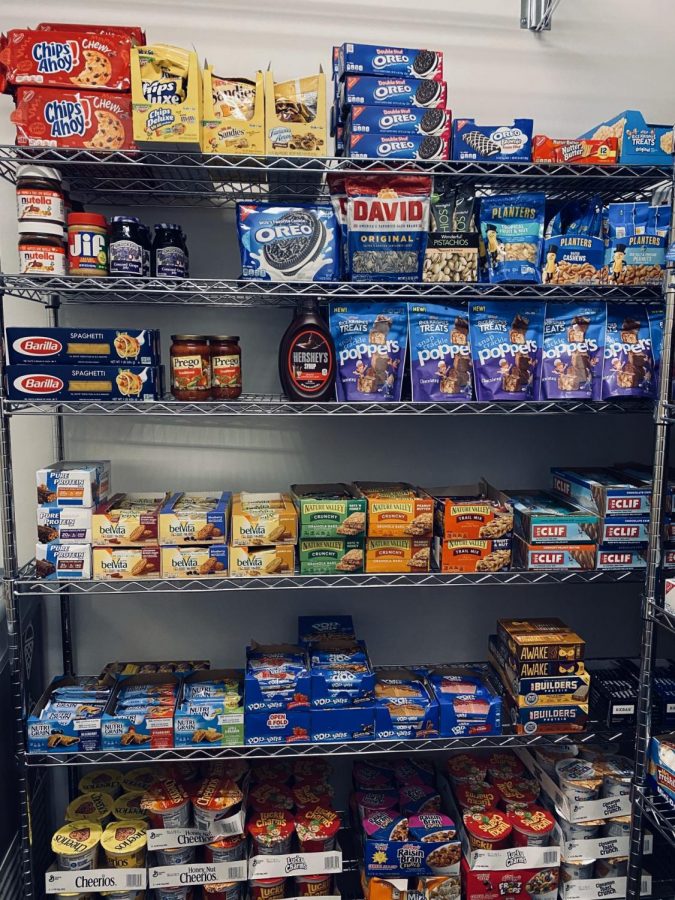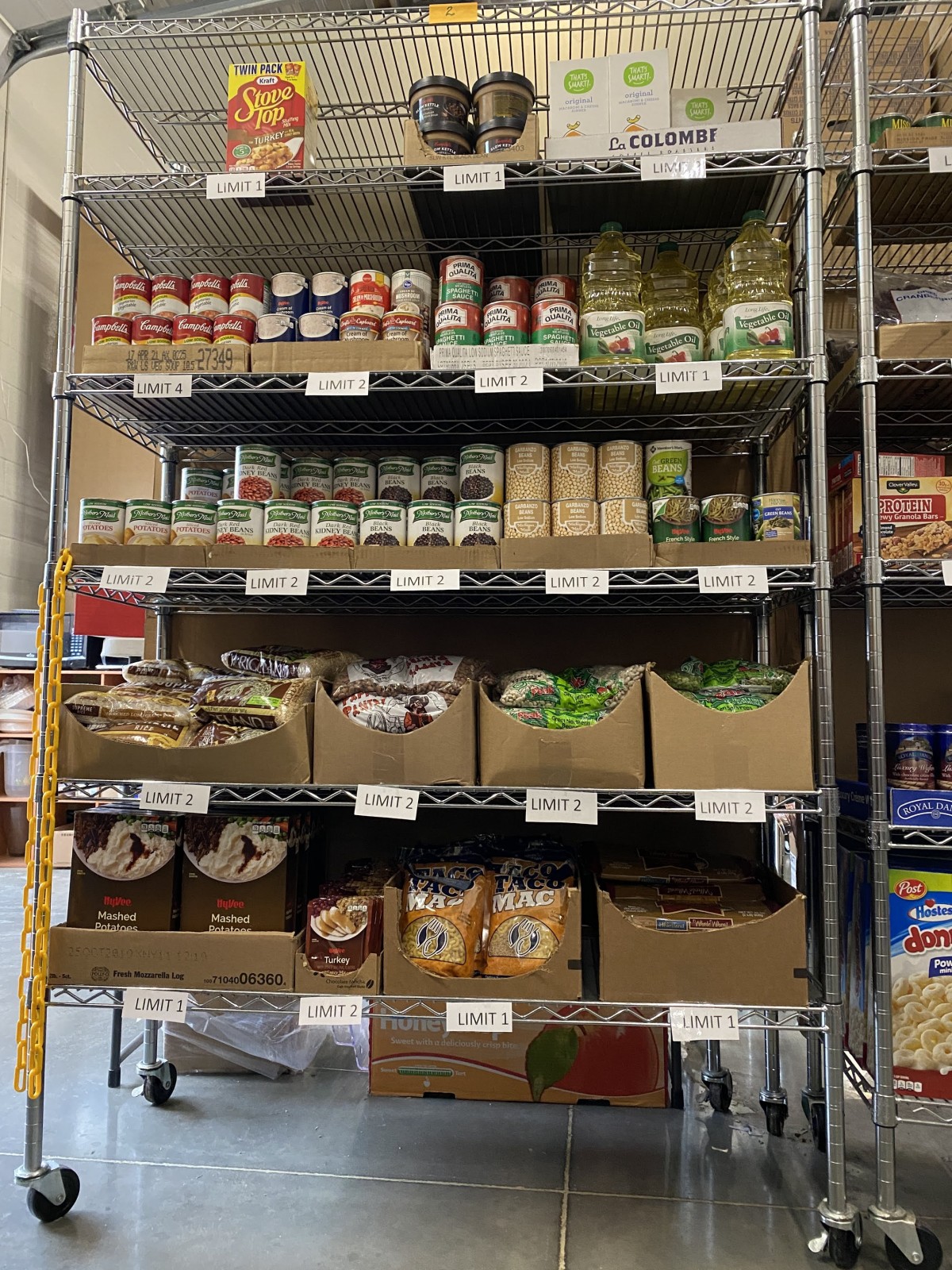Discover Exactly How Food Pantry Lockhart Supports Local Areas
Discover Exactly How Food Pantry Lockhart Supports Local Areas
Blog Article
Why Sustaining Your Regional Food Cupboard Is Essential for Helping Those in Demand
The value of sustaining neighborhood food pantries can not be overstated, specifically in the context of food insecurity, which impacts a startling number of people and family members within our communities. As we discover the complex role of food cupboards, it ends up being apparent that their influence prolongs much past merely distributing food.
Comprehending Food Insecurity
Food insecurity affects approximately 10.5% of households in the USA, highlighting a significant public health and wellness concern that goes beyond plain hunger. It describes the lack of regular accessibility to enough food for an energetic, healthy life. This problem can result in a variety of adverse outcomes, consisting of inadequate wellness, raised health care expenses, and lessened academic performance amongst youngsters.
The sources of food insecurity are complex, often originating from financial variables such as poverty, unemployment, and underemployment. Geographical area can additionally play a critical duty, with food deserts-- areas with minimal access to healthy and affordable food-- intensifying the problem - Food Pantry Lockhart. Furthermore, systemic variables, consisting of racial and social inequities, contribute to the out of proportion impact of food instability on marginalized neighborhoods
Dealing with food instability is not merely concerning increasing food supply; it calls for a thorough strategy that encompasses economic security, education, and area assistance. Food insecurity not just influences private well-being yet likewise has more comprehensive ramifications for social health and wellness and efficiency. Understanding its intricacy is crucial for creating effective treatments and promoting lasting solutions that make sure all people have dependable accessibility to healthy food.
The Function of Food Pantries
Neighborhood food cupboards work as important lifelines for family members and individuals dealing with food instability. They provide essential food items to those who may have a hard time to manage ample nutrition as a result of economic hardship, unemployment, or unpredicted scenarios. By distributing food at no price, these organizations aid minimize hunger and stop the negative health effects connected with insufficient diets.
Food kitchens frequently companion with local ranches, grocery store shops, and area organizations to resource a range of nourishing food products, consisting of fresh produce, dairy products, and healthy proteins. This partnership makes sure that cupboard clients obtain not only sustenance but additionally healthier alternatives that add to general well-being.
Additionally, food cupboards function as area centers, cultivating links amongst residents and supplying a feeling of dignity to those in need. Many kitchens use extra resources, such as nourishment education and learning and referrals to social services, helping clients navigate their obstacles better.
Basically, food cupboards play a multifaceted function in combating food instability. They not just address prompt cravings but also equip people and families to boost their circumstances, therefore promoting community strength and communication.

Benefits of Sustaining Food Pantries

Sustaining food cupboards not just nurtures those in need yet also reinforces the textile of the community. By giving vital food sources, food cupboards alleviate appetite and minimize food insecurity, which is crucial for the health and well-being of individuals and family members. Access to nourishing food contributes to boosted physical wellness, much better academic end results for children, and improved mental health, therefore cultivating an extra effective and involved area.
In addition, supporting food cupboards advertises social communication. These organizations function as centers for community engagement, bringing with each other volunteers, contributors, and receivers in a common goal to combat cravings. This partnership can break down obstacles, foster understanding, and build connections amongst diverse area participants.
Furthermore, contributions to food kitchens, whether in the kind of food, top article funds, or time, promote the neighborhood economy. Many food cupboards prioritize sourcing from neighborhood producers, hence sustaining local farming and organizations. This produces a cycle of assistance that benefits not only those in need yet the community all at once.
Exactly How to Get Involved
Involvement with food kitchens can take lots of kinds, permitting teams and individuals to make a purposeful effect in their communities. Among the most direct methods to obtain involved is by donating food products. Non-perishable items such as canned products, pasta, and rice are constantly in need. Monetary donations are additionally vital, as they make it possible for food kitchens to purchase fresh fruit and vegetables and necessary supplies.
Offering your time is one more impactful method to sustain neighborhood food cupboards. Numerous organizations depend on volunteers for sorting, packing, and dispersing food. This hands-on participation not just aids the pantry however additionally cultivates a sense of neighborhood. In addition, take into consideration organizing food drives within your office, school, or community team to elevate understanding and collect resources.
Partnerships with local businesses can better enhance assistance for food pantries. By taking these actions, people and groups can substantially bolster the efforts of neighborhood food cupboards and help those in demand.
Community Impact and Link
Recognizing the extensive impact of food cupboards on community wellness is essential for promoting a spirit of link and partnership. Food kitchens serve not only as this important resources for those encountering food insecurity however likewise as centers for community engagement. They unite diverse groups-- volunteers, donors, and clients-- producing an atmosphere where people can sustain and connect each other.
The influence of food kitchens prolongs beyond plain stipulation of food; they function as a driver for social cohesion. By taking part in pantry campaigns, community participants can create partnerships that go beyond socioeconomic barriers. This network of assistance helps to dismantle the preconception often linked with food aid, fostering an ambience of acceptance and understanding.
Furthermore, food cupboards commonly collaborate with neighborhood organizations, colleges, and services, amplifying their reach and performance. These collaborations improve community durability and encourage a collective response to food instability. As individuals unite in their initiatives to support neighborhood food kitchens, they cultivate a feeling of shared objective and obligation, reinforcing the helpful hints concept that every person has a function to play in guaranteeing that no one goes hungry. Inevitably, supporting food kitchens reinforces the textile of the community in its entirety.
Verdict
Sustaining neighborhood food pantries is essential in combating food insecurity and improving the health of at risk populations. Engagement with food cupboards fosters area links, promoting social cohesion and equity.

Report this page